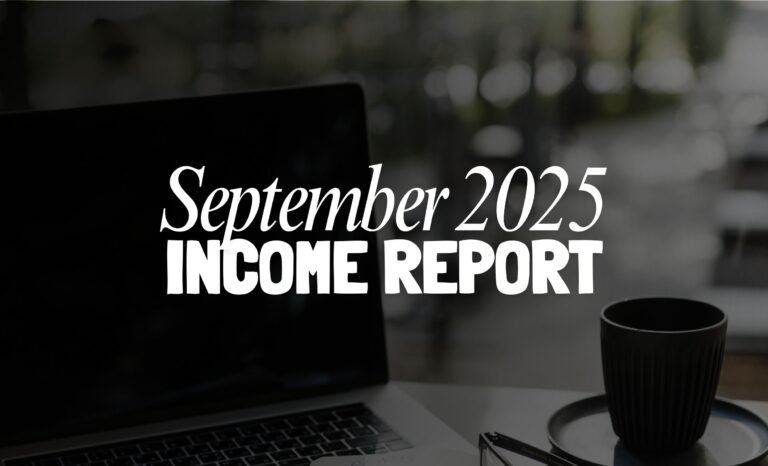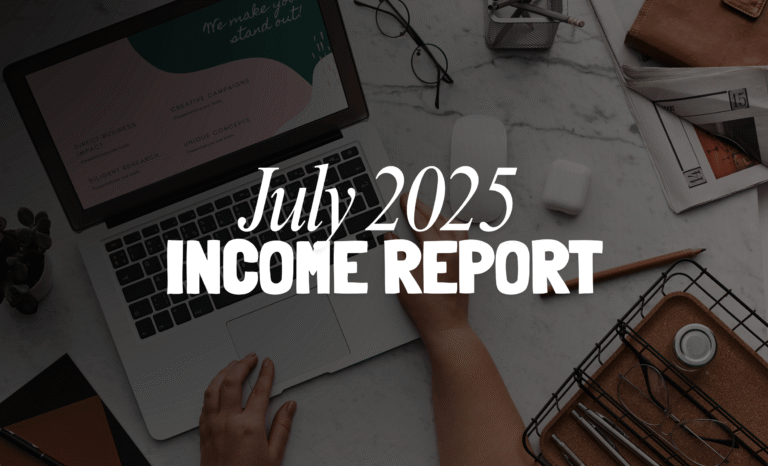This article may contain affiliate links. When you purchase something we recommend, we make a small commission. You don’t pay anything extra. 💘 For more details, check out our Terms of Use page.
Thanks for landing here. As a marketer and long-time blogger, my aim here is to make things as super duper easy as possible.
Kinda like if we were sitting having coffee and you asked me this question.
Truth is, I explain what SEO is and isn’t to non-marketing-background clients all the time.
And it has made me realize something: there are still a ton of questions about SEO floating around in 2025. But people are either:
a) too confused by how we explain it, or
b) kind of embarrassed to admit they don’t really get it.
Let’s skip both. This post will walk you through what SEO actually is (and isn’t), so you can make smarter decisions—like whether you actually need all those add-on services people are pitching you.
Disclaimer: This is my take as a marketer, someone who runs an agency and has freelanced for over 7 years. I’ve worked with 500+ clients and businesses and watched the direction of SEO shift, especially for small and solo-preneurs. This isn’t advice for a multi-million-dollar brand with an SEO team. It’s for bloggers, creators, and small business owners like us.
Table of Contents
ToggleWhat Does SEO Stand For?
SEO = Search Engine Optimization.
It’s just a fancy way of saying:
“How can I help Google find and show my stuff when someone searches for it?”
A few years ago, this meant small creators had to game the system: cramming keywords into every sentence, swapping links, or finding sneaky ways to climb Google’s ranks. These days, it’s mostly the big creators or media sites doing the gaming, thanks to brand deals, paid placements, and a level of scale we can’t compete with.
If you’re confused, here’s what you need to know:
- Back in the day, people could literally pay to show up higher in rankings.
- There was less competition, so it worked.
- And no one really had a clear ethical line around it.
So I could pay you to list my blog on your website, and in return, I get a little SEO boost. (This is called a backlink, which we’ll get into later.)
But here’s the catch:
🔴 This is now considered illegal by Google’s standards.
The outcome? If you get spammed by people asking, “Hey, how much to place my gambling/casino/crypto website link on your blog?”
Your answer is: No, thank you.
Unless you want your site to get penalized or vanish from search results, avoid paid backlink schemes—especially the shady ones.
Why Does the Internet Even Need SEO?
Because the internet is overflowing with content.
When someone searches “best places to scuba dive in Malta,” Google has to sort through millions of posts and decide which ones to show first.
That’s where SEO comes in. It helps Google understand:
- What your post is about
- Who it’s for
- And whether it’s actually helpful
If you had a room full of recipe books with no organizing and you were looking for a bread recipe, you’d have to search through every single book to find them.
But if your books were marked by type of recipe, ingredients, cooking time, and season, you’d find things way faster.
Same with SEO. It’s how your blog tells Google, “Here’s what I’m about.”
You don’t want to name your content something random that no one would associate with it.
What’s the Difference Between On-Site and Off-Site SEO?
Ah yes, the jargon no one explains.
On-Site SEO = the stuff on your actual website
It’s all the things you can control yourself:
- Blog post titles
- Keywords
- Image descriptions (alt text)
- Page speed
- Mobile-friendliness
- Internal links
- Meta descriptions and URLs
It’s like tidying your house before guests arrive.
🔗 Off-Site SEO = the stuff that happens outside your website
This includes:
- Backlinks
- Social shares
- Mentions in other blogs or press
- Your overall online reputation
Harder to control—and often where sketchy tactics come in. (If someone offers you 100 backlinks for $9? Run.)
In short:
- On-site = how you build and organize your blog
- Off-site = how the internet talks about your blog
Start with on-site. Build off-site naturally.
Why Do Marketers Upsell SEO?
Because most clients don’t know how to set up a blog or write content that’s clear, readable, and converts.
So SEO becomes an easy upsell. Sometimes it’s useful. Sometimes it’s just fluff.
It’s not a magical land.
But it is important to get right—especially the basics.
As you grow, strategy matters more. But at the start, don’t pay for things you can Google or learn in an afternoon.
It’s like banking. Managing a few thousand a year is different from managing millions.
Same with SEO.
What Software Do Bloggers Actually Use for SEO?
When it comes to bloggers, certain tools come up a lot. Now you’ll know they’re all about SEO support.
They track or suggest things so you can fine-tune your content.
Common tools:
- Ahrefs – deep keyword and backlink analysis
- Ubersuggest – beginner-friendly keyword tool
- Keywords Everywhere – browser extension for search volume
- Yoast SEO – plugin for WordPress
- Rank Math – another plugin, more advanced
- Google Analytics – see how visitors use your site
- SEMRush – similar to Ahrefs, more focused on audits
You don’t need all of these. Pick:
- One keyword tool
- One plugin
- Google Search Console (also free and useful)
Why Do Some People Say SEO Is Dead?
Because Google—and specifically Prabhakar Raghavan—changed how Search works.
There’s a great piece by Edward Zitron about it I’ve linked just here. But here’s the short version I tell clients:
Two people to remember:
- Ben Gomes: the search guy. Believed search should show useful, accurate content.
- Prabhakar Raghavan: the ad guy. Focused on money, ran Yahoo Search into the ground.
In 2019, Google freaked out about ad revenue (they called it a “Code Yellow”).
The ad guy and the search guy clashed.
The ad guy won.
Raghavan replaced Gomes. Ads and Search were merged.
What does that mean?
The person who wanted to sell more products became the one deciding what shows up when you search.
Google also made deals with Reddit, Quora, and big media sites. Now they often show up first—even if their info is outdated or bad.
So yeah, search got worse. And it wasn’t an accident.
If this interests you, read Edward Zitron’s article. I revisit it regularly.
So… How Much SEO Do You Actually Need in 2025?
You need to know the basics and not be constantly playing catch-up.
Why? Because SEO is getting more complex.
You also need to be realistic about your goals and skillset.
- Are you casually blogging for fun? Learn the basics.
- Are you building a business or monetized site? You’ll need more strategy.
And remember—SEO is just one way to get traffic. It’s not the only path.
You can also grow through:
- Social media
- Email lists
- Partnerships and press
- Paid ads
- Word of mouth
Use SEO to help your content get found. But don’t let it be the thing that stops you from hitting publish.
ESSENTIAL INFORMATION IF YOU FOUND THIS USEFUL




